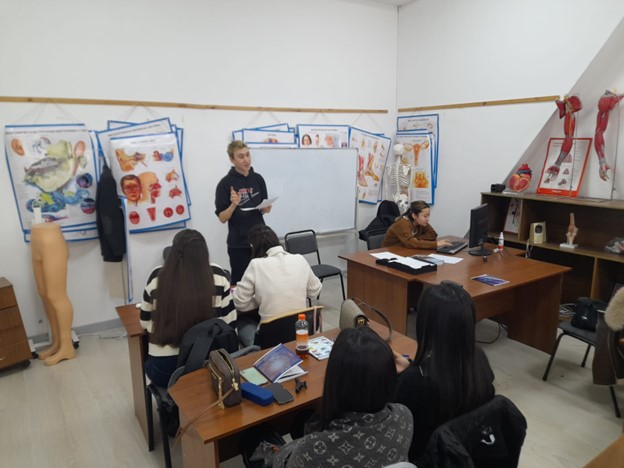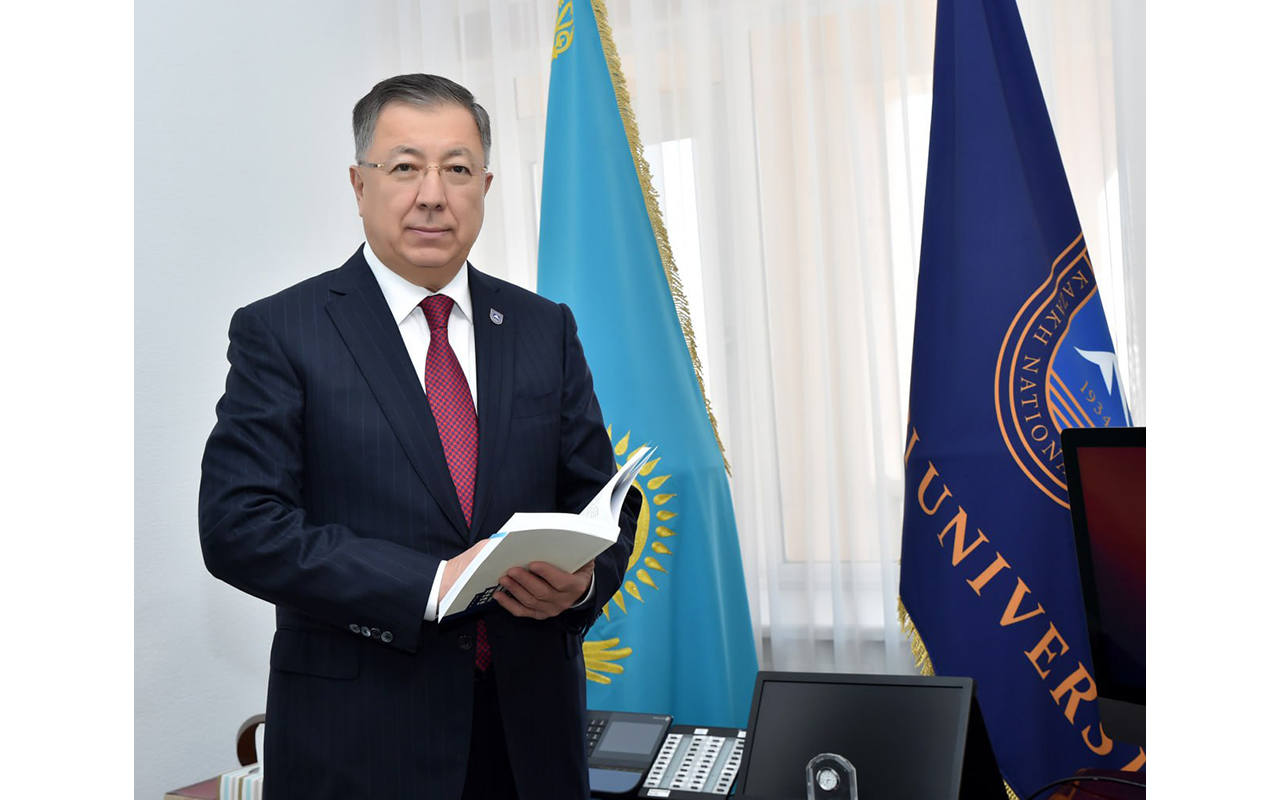A roundtable on the issue of clean water and sanitation within the framework of the SDGs.

A round table was held in a group of students of the Faculty of Medicine and Public Health on the issue of clean water and sanitation within the framework of the SDGs.
The speaker, 2nd year student Seisembekov Bekarys, made a detailed report on the problem of clean water in the world and sanitation.
Water pollution and lack of access to clean water are serious global problems that affect the health of both people and ecosystems. Causes of water pollution: industrial discharges; agricultural runoff; improper waste disposal; oil spills; plastic pollution. Contaminated water can cause waterborne diseases such as cholera, dysentery and other gastrointestinal diseases. Pollution of water bodies harms aquatic ecosystems, leading to a reduction in fish populations and biodiversity, disrupts the balance of ecosystems and causes long-term damage to aquatic habitats. Prolonged exposure to certain pollutants can lead to chronic health problems, including cancer and reproductive problems. Lack of access to clean water and global water scarcity is a dangerous trend that is gaining momentum these days. Many regions face water shortages, which affects the availability of clean water for drinking and sanitation. Climate change is exacerbating water scarcity problems in various parts of the world. The unavailability of clean water contributes to the spread of waterborne diseases that affect millions of people. Communities without reliable access to clean water face challenges in maintaining proper hygiene and sanitation. Insufficient access to clean water affects school attendance, especially by girls, who in some cultures may be responsible for collecting water. Productivity decreases in areas where people spend significant time collecting water from remote sources.Water-related diseases place an economic burden on individuals and health systems. In this regard, Kazakhstan has taken commendable steps to solve water-related problems and improve the situation with water resources. The Government of Kazakhstan has implemented water management initiatives to improve the efficiency of water resources use. These efforts include the development of sustainable irrigation methods and the introduction of modern technologies in agriculture. Kazakhstan is also actively involved in transboundary water cooperation, cooperating with neighboring countries on common river basins. Multilateral agreements and diplomatic efforts contribute to the sustainable management of transboundary rivers, strengthening regional stability. The participation of local communities in efforts to manage and conserve water resources is crucial, and initiatives to raise awareness of responsible water use and sanitation practices contribute to the formation of a sense of shared responsibility among the population. Kazakhstan actively cooperates with international organizations and partners to benefit from shared knowledge, experience and resources. These partnerships facilitate the exchange of best practices and innovative solutions for sustainable water management.
